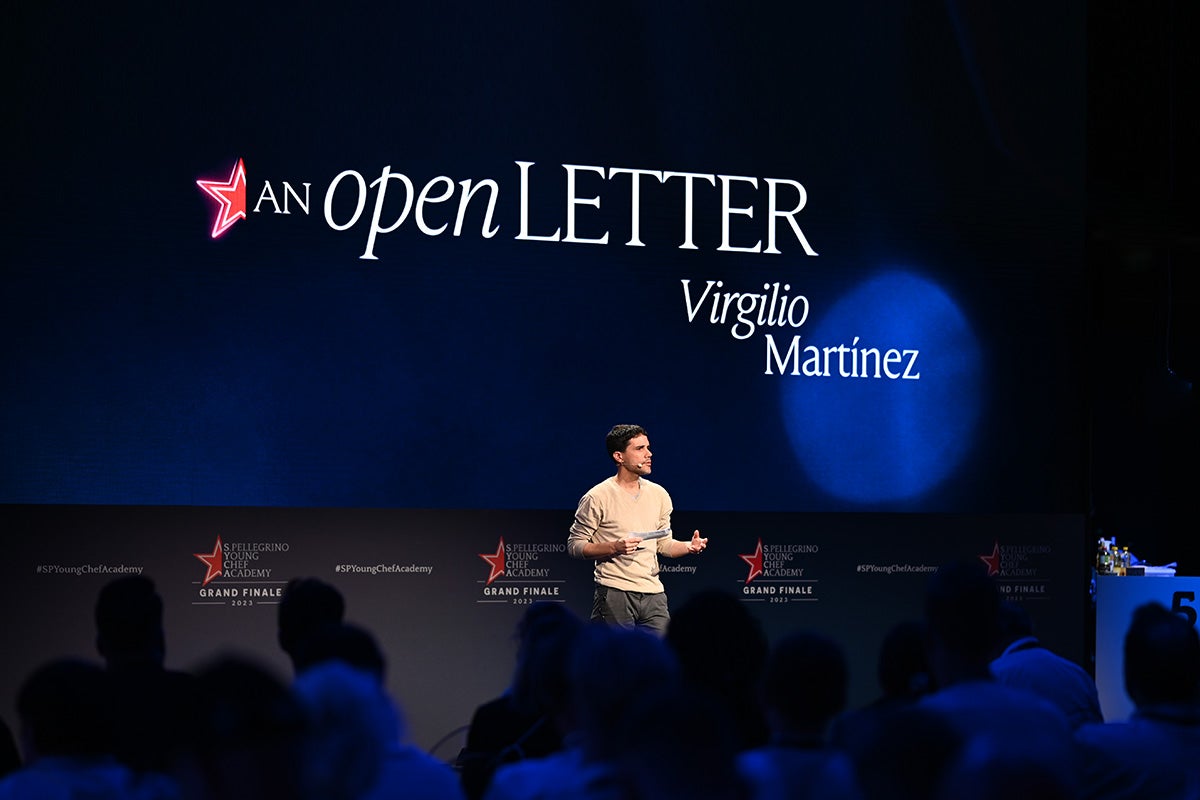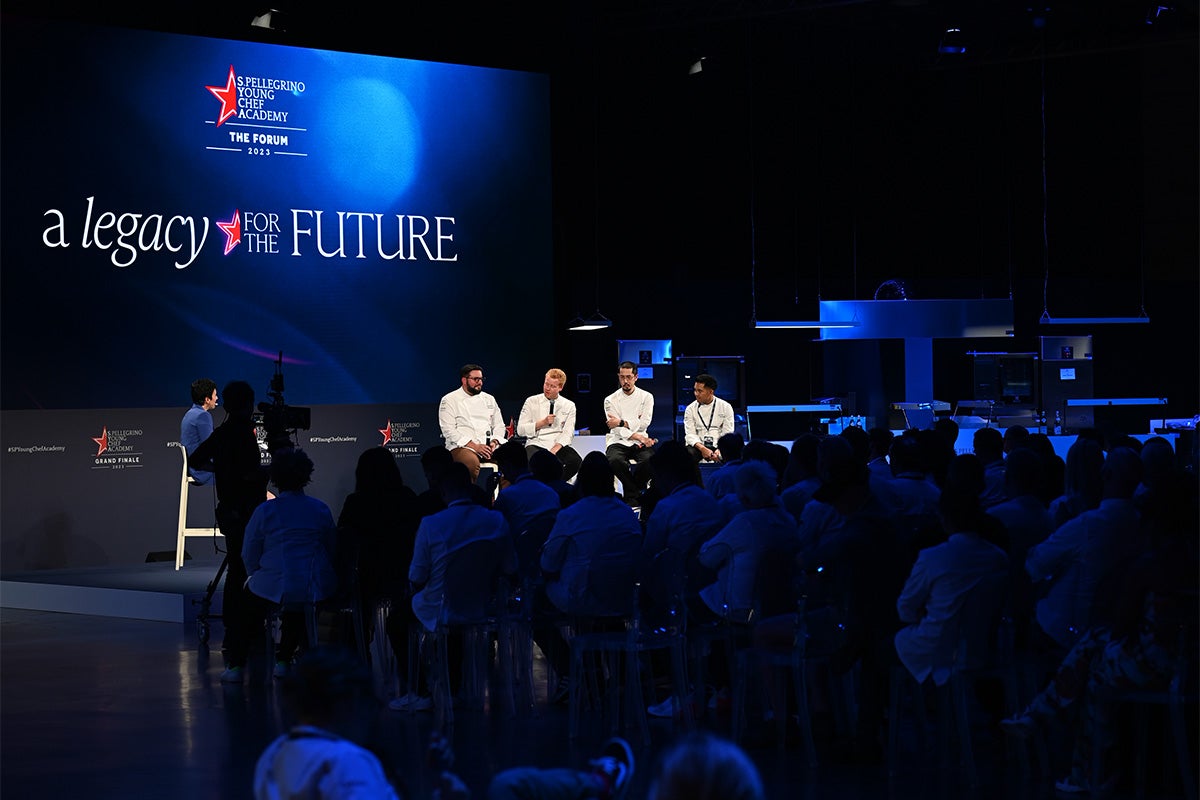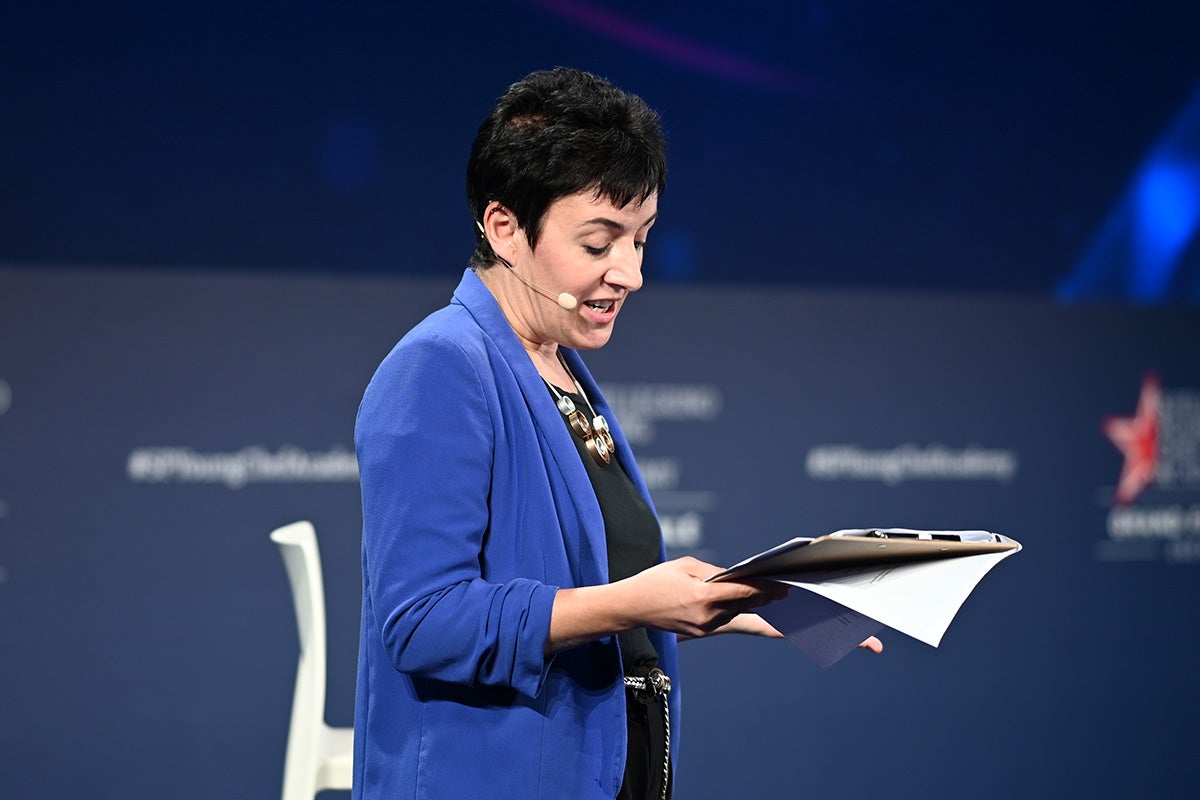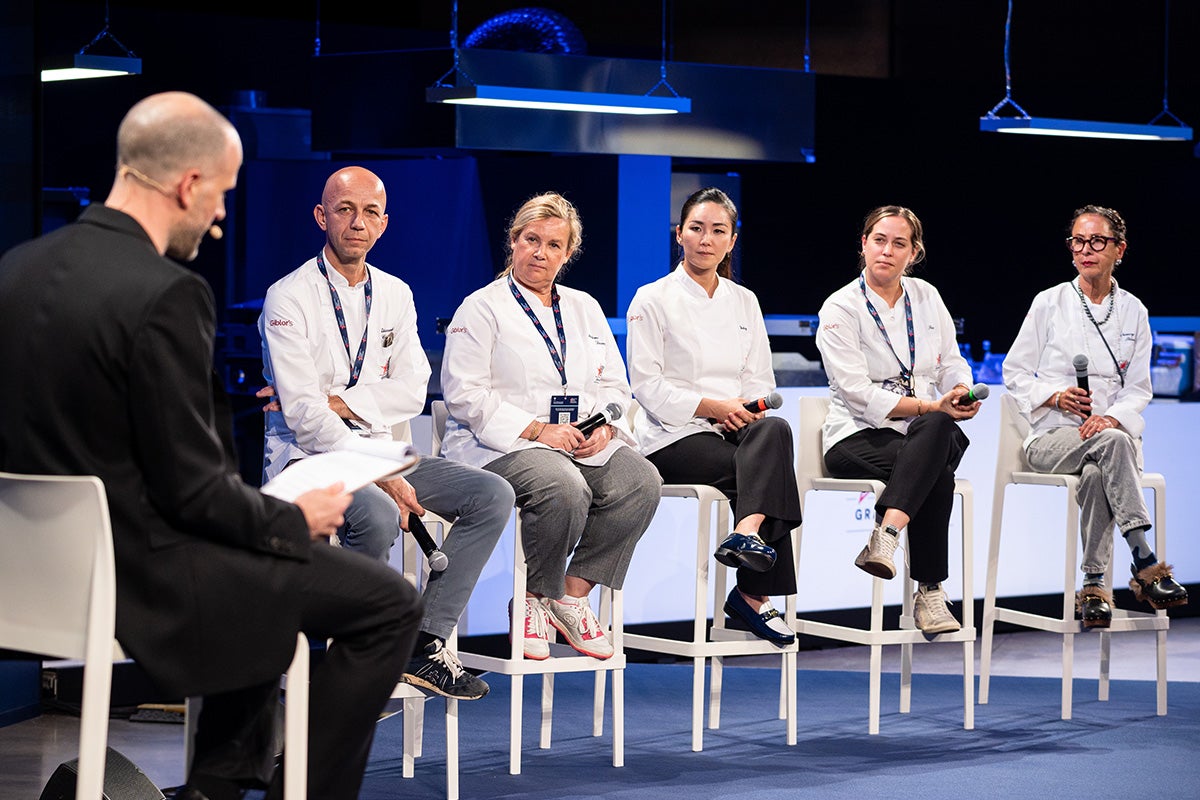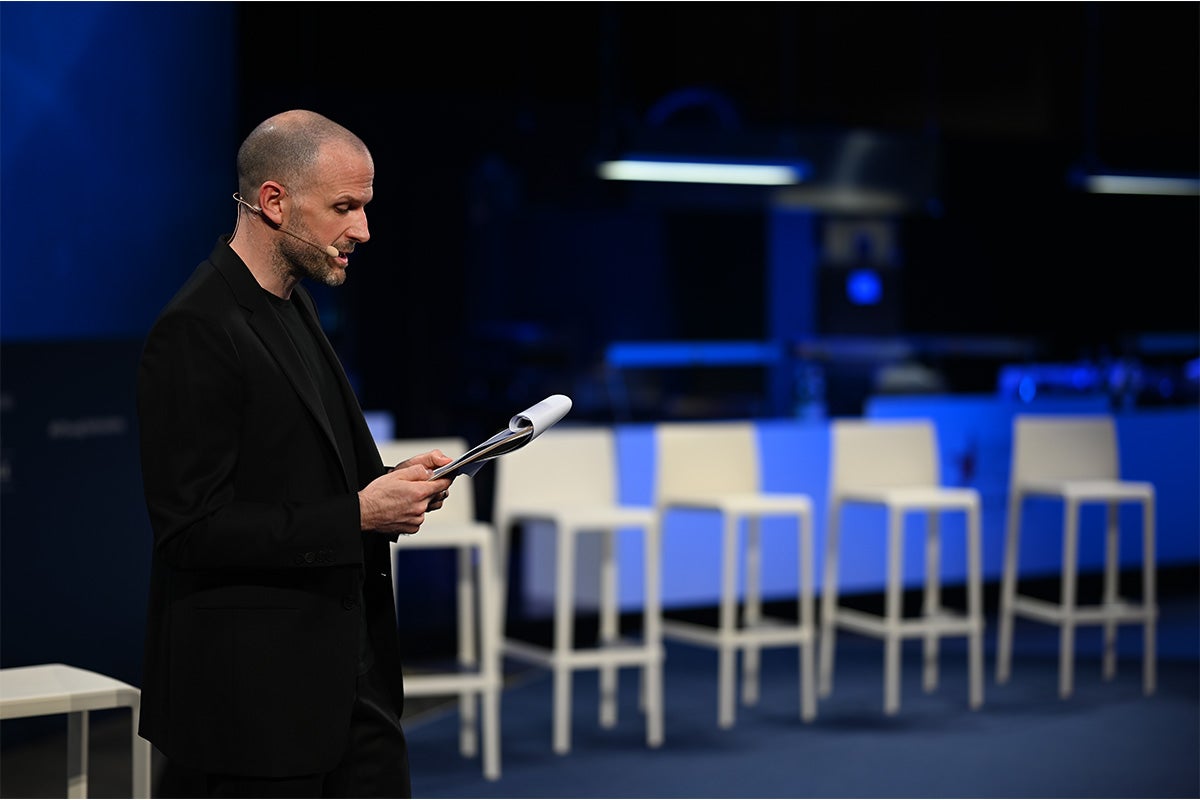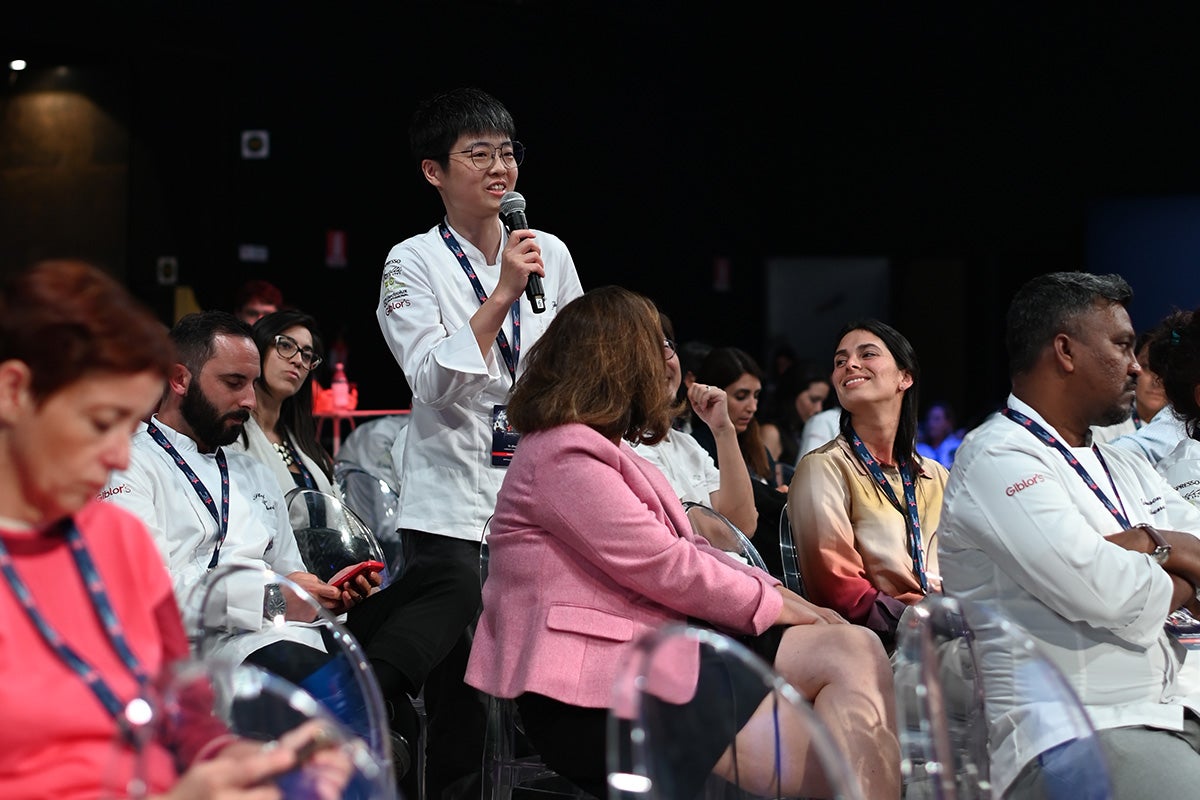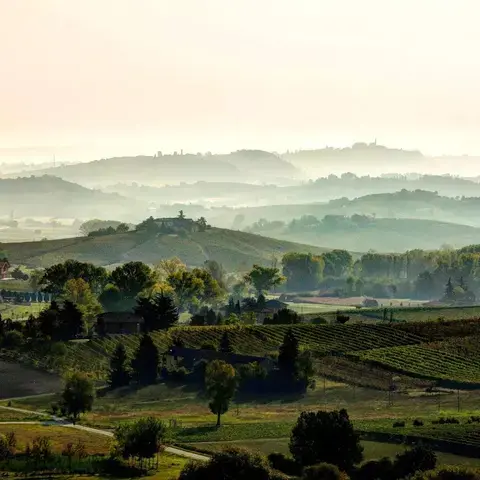There was no shortage of questions from the audience, for example about the use of vegetables in contemporary fine dining. "I think that today a luxury product might be a carrot or fennel: in the past it was pigeon; I need to 'listen' to vegetables, to practice with them, to approach them in a different way in order to make the most of them," replied Camanini.
What do you think of the somewhat harsh image of kitchens created by TV?
"I think we should change economic values into human values: we have to be aware that we are only a small part of the system and together we can change it," Camanini replied. "It is true that there is a lot of sacrifice in the kitchen, but now we want to promote change: it is up to us," added León.
Today there are many women in the SPYCA Grand Jury, but that is not true of the industry as a whole: what do you think about that?
"There are women in the kitchen, but not enough. Certainly, when you work in the industry, I think the main obstacle is in women's heads," suggested Darroze.
"A woman has a natural femininity in her approach to dishes, there is something instinctive in a woman to create, and you find that in food as well. Don't hate me for this opinion," Silverton replied. "I think we cook more instinctively than men," Darroze added.
When you are looking for new staff, do you actively seek out women?
"I try to analyse attitudes, regardless of whether it is a man or a woman," Leon replied. "I feel the kitchen is kinder and more elegant when we have a balance of male and female members," remarked Camanini. "I don't look at gender, but personality," concluded Lau. With these considerations, the curtain fell on The Forum of the S.Pellegrino Young Chef Academy Competition 2022-23. Who will win the title of best young chef in the world? Look out for the announcement tomorrow evening.

